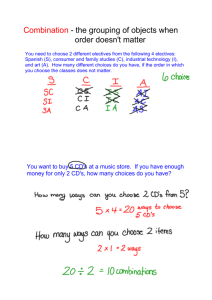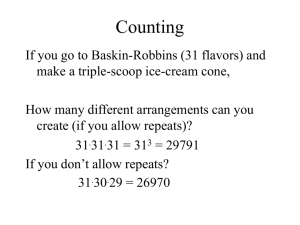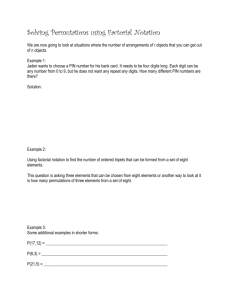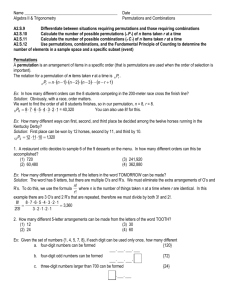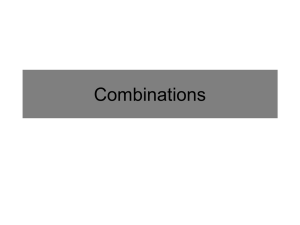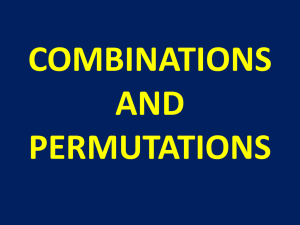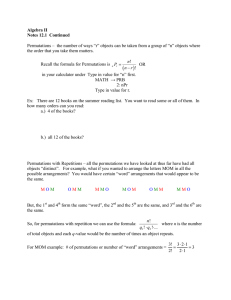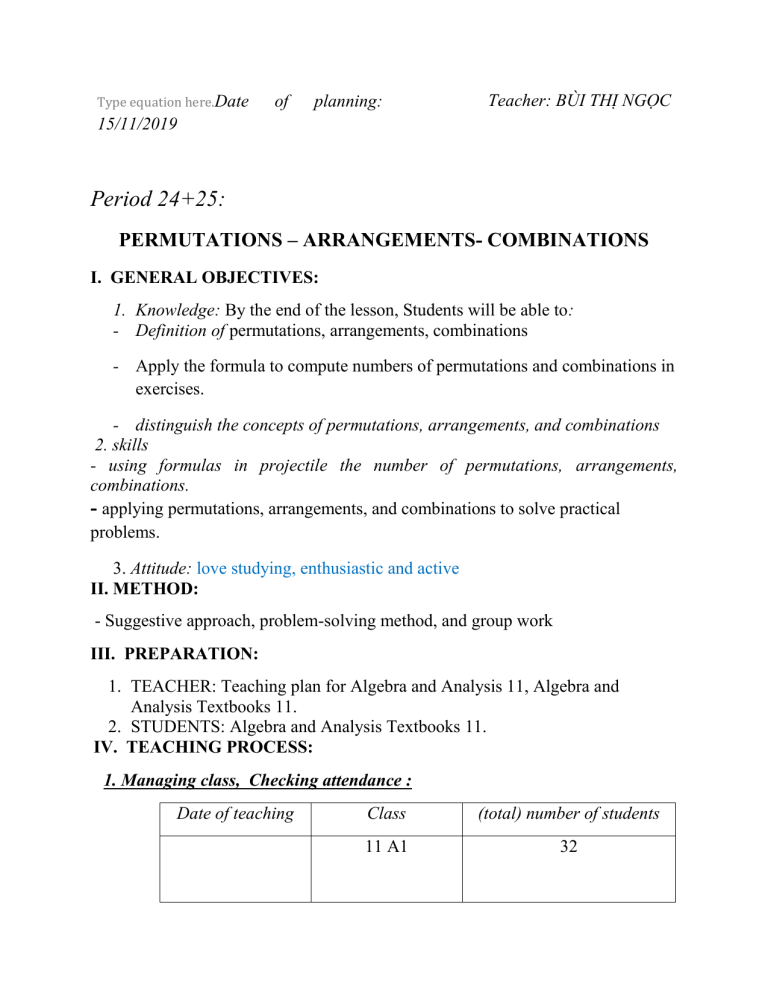
Type equation here.Date
of
planning:
Teacher: BÙI THỊ NGỌC
15/11/2019
Period 24+25:
PERMUTATIONS – ARRANGEMENTS- COMBINATIONS
I. GENERAL OBJECTIVES:
1. Knowledge: By the end of the lesson, Students will be able to:
- Definition of permutations, arrangements, combinations
- Apply the formula to compute numbers of permutations and combinations in
exercises.
- distinguish the concepts of permutations, arrangements, and combinations
2. skills
- using formulas in projectile the number of permutations, arrangements,
combinations.
- applying permutations, arrangements, and combinations to solve practical
problems.
3. Attitude: love studying, enthusiastic and active
II. METHOD:
- Suggestive approach, problem-solving method, and group work
III. PREPARATION:
1. TEACHER: Teaching plan for Algebra and Analysis 11, Algebra and
Analysis Textbooks 11.
2. STUDENTS: Algebra and Analysis Textbooks 11.
IV. TEACHING PROCESS:
1. Managing class, Checking attendance :
Date of teaching
Class
(total) number of students
11 A1
32
2. Checking:
Exercise 1: how many ways are there to select an ordered pair of numbers from 1 to
7 ( repetition allowed) so that the sum is even?
Solution:
- partition into two cases
+ both even: 3.3=9
+ both odd: 4.4=16
Total 9+16=25
Exercise 2 from the natural numbers 1,2,...,7. How many numbers of 4 distinct digits
from given numbers?
- That number is even?
A.360
B.343
C. 523
D. 347
C.480
D.347
- that number is odd?
A.360
B.343
3. new words
1. permutations
2. arrangements
3. combinations
4. element
5. possibility
6. selection
7. list
8. order
Hoán vị
Chỉnh hợp
Tổ hợp
Phần tử
Sắp xếp
Chọn
Liệt kê
Thứ tự
Activity 1: permutations
Teacher’s activities
+given set A = {1,2,3,4}. List all fourdigit numbers formed from digits 1,2,3
and 4
+ each way arrangement is called a
permutation of 4 elements
Student’s activities
+ 1234,1243,1324,1324,1423,1432
+ 2134,2143,2314,2341,2413,2431
+ 3124,3142,3214,3241,3412.3421
+ 4123,4132,4213,4231,4312,4321
Definition : given set A
containing n elements (𝑛 ≥ 1)
each result of the ordered
arrangements of n elements of
set A is called a permutations of
the n elements
- Remark: two permutations of n
elements differ only in
arrangement order.
Activity 2: number of permutations
Teacher’s activities
+ example1 state how many ways of
arranging the seating of four students
An , Binh , Chi and Dung at the same
table.
- Method
+ first method: listing all
possibilities
+ second method: applying the rule
of multiplication
Denoted by Pn the munber of
permutations of n elements
Theorem Pn =n(n-1).…2.1
Note: Pn=n(n-1)…2.1=n!
Activity 3 Consolidation
Activity 4 arrangements
Teacher’s activities
+ Listen and write in notebook
- Let example about remark
Student’ activities
+ listing all possibilities
+ applying the rule of multiplication
Student’s activities
